Founded in 1938 and published semiannually by Sophia University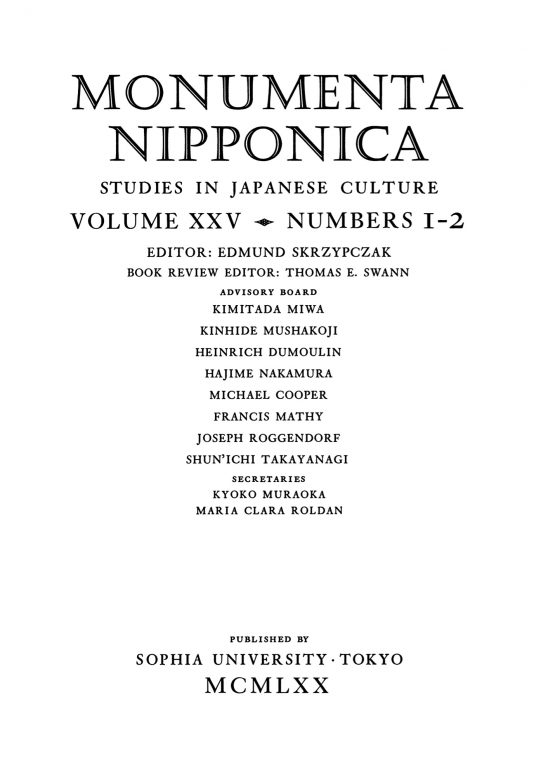 MN 25:1/2 (1970) 155–95Japan’s Experiment in KoreaDavid J. Brudnoy
MN 25:1/2 (1970) 155–95Japan’s Experiment in KoreaDavid J. Brudnoy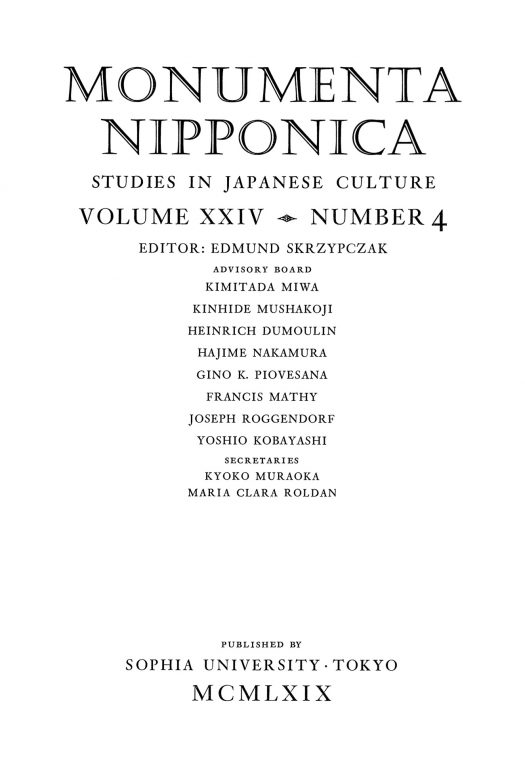 MN 24:4 (1969) 353–71Early Meiji Liberalism: An AssessmentMikiso Hane
MN 24:4 (1969) 353–71Early Meiji Liberalism: An AssessmentMikiso Hane MN 24:4 (1969) 373–92General Grant’s 1879 Visit to JapanRichard T. Chang
MN 24:4 (1969) 373–92General Grant’s 1879 Visit to JapanRichard T. Chang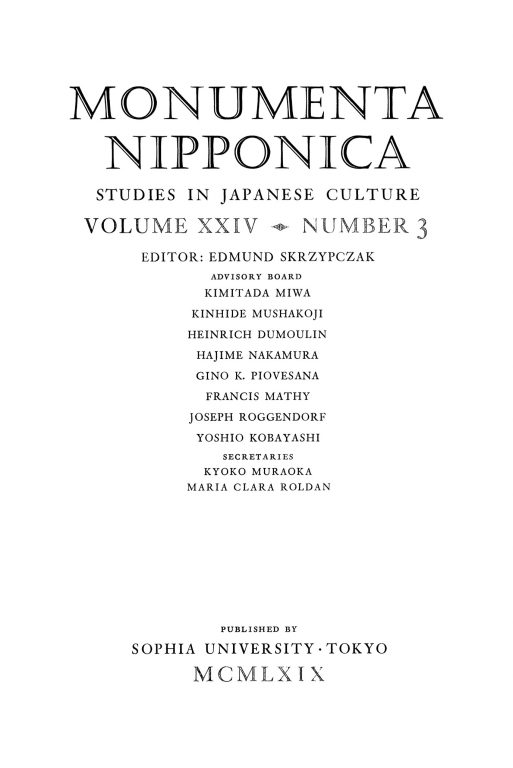 MN 24:3 (1969) 259–72The Sources of English Liberal Concepts in Early Meiji JapanMikiso Hane
MN 24:3 (1969) 259–72The Sources of English Liberal Concepts in Early Meiji JapanMikiso Hane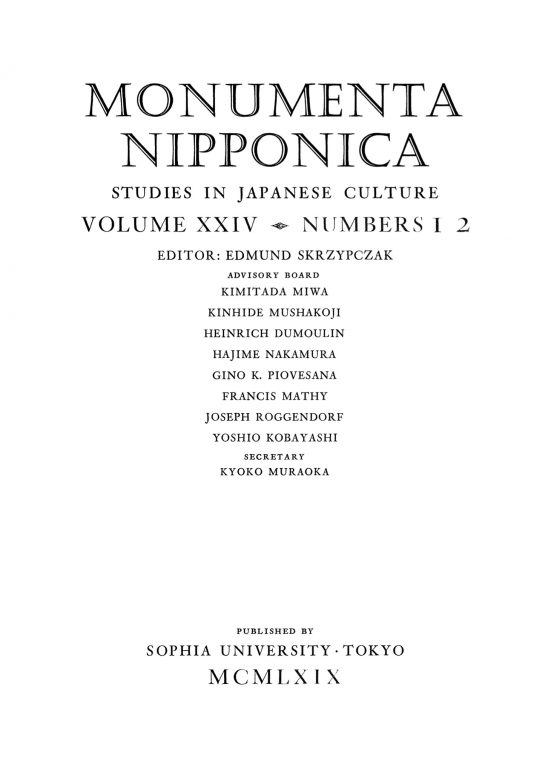 MN 24:1/2 (1969) 47–58Shigarami-ZōshiJames R. Morita
MN 24:1/2 (1969) 47–58Shigarami-ZōshiJames R. Morita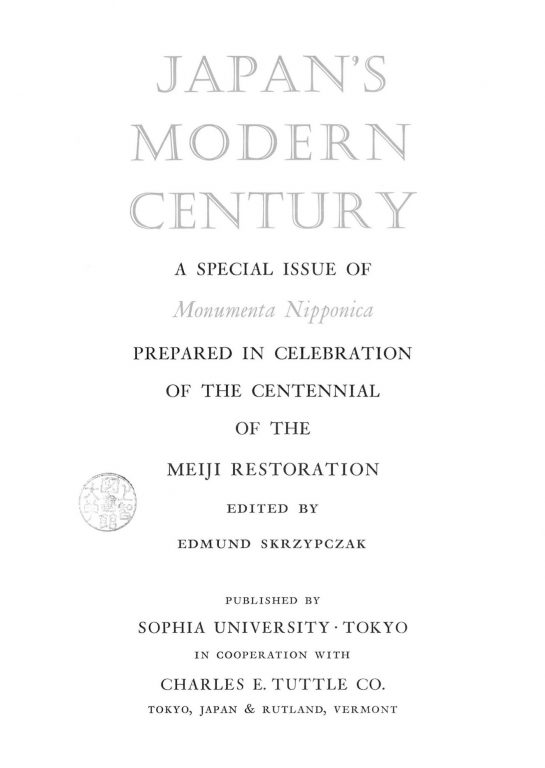 Other Books (1968) 1–207Japan’s Modern Century: A Special Issue of Monumenta Nipponica Prepared in Celebration of the Centennial of the Meiji RestorationEdited by Edmund R. Skrzypczak
Other Books (1968) 1–207Japan’s Modern Century: A Special Issue of Monumenta Nipponica Prepared in Celebration of the Centennial of the Meiji RestorationEdited by Edmund R. Skrzypczak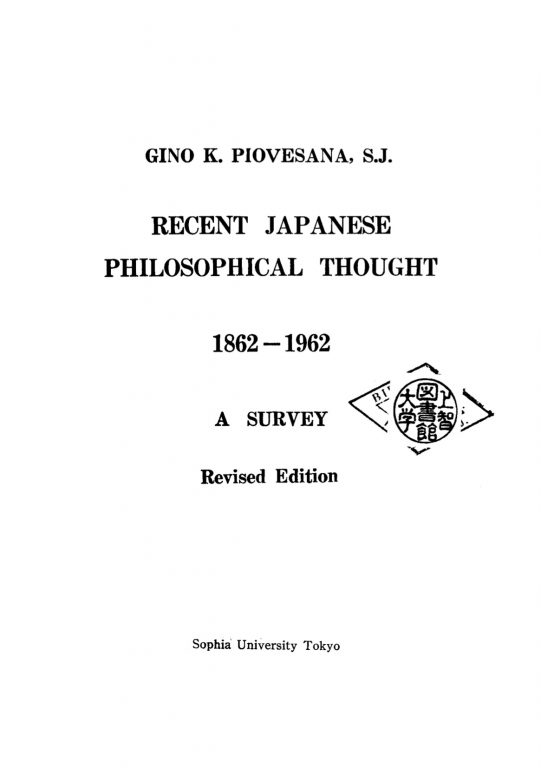 Monographs (1968) 1–296Recent Japanese Philosophical Thought: 1862-1962, A SurveyGino K. Piovesana
Monographs (1968) 1–296Recent Japanese Philosophical Thought: 1862-1962, A SurveyGino K. Piovesana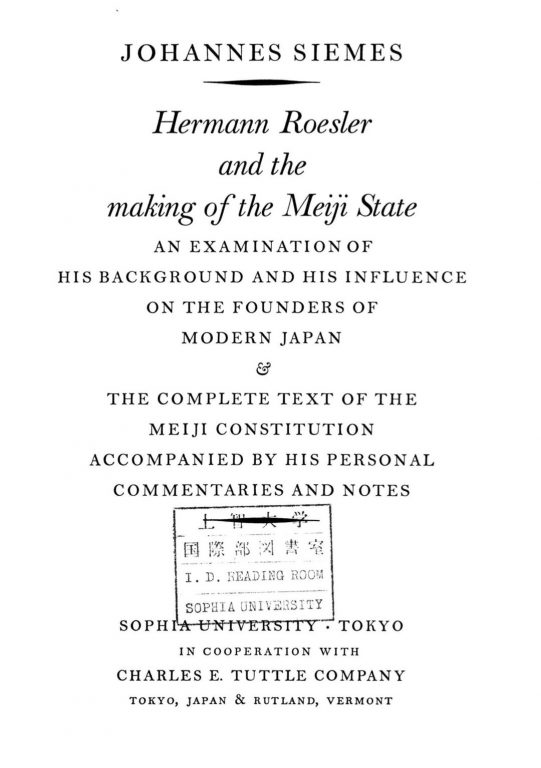 Monographs (1968) 1–252Hermann Roesler and the making of the Meiji StateJohannes Siemes
Monographs (1968) 1–252Hermann Roesler and the making of the Meiji StateJohannes Siemes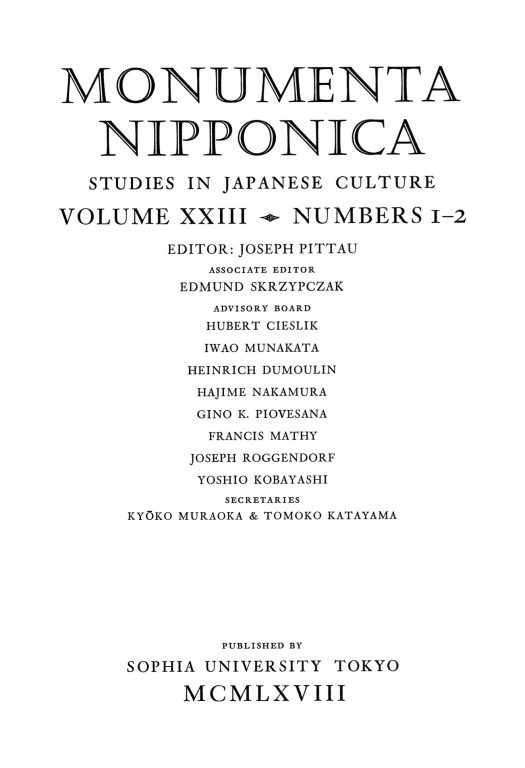 MN 23:1/2 (1968) 9–30The Formulation of the Meiji Government Policy Toward the employment of foreignersHazel J. Jones
MN 23:1/2 (1968) 9–30The Formulation of the Meiji Government Policy Toward the employment of foreignersHazel J. Jones MN 23:1/2 (1968) 66–89Japan & Manchuria: Ambassador Forbes’ Appraisal of American Policy Toward Japan in the Years 1931–32George Alexander Lensen
MN 23:1/2 (1968) 66–89Japan & Manchuria: Ambassador Forbes’ Appraisal of American Policy Toward Japan in the Years 1931–32George Alexander Lensen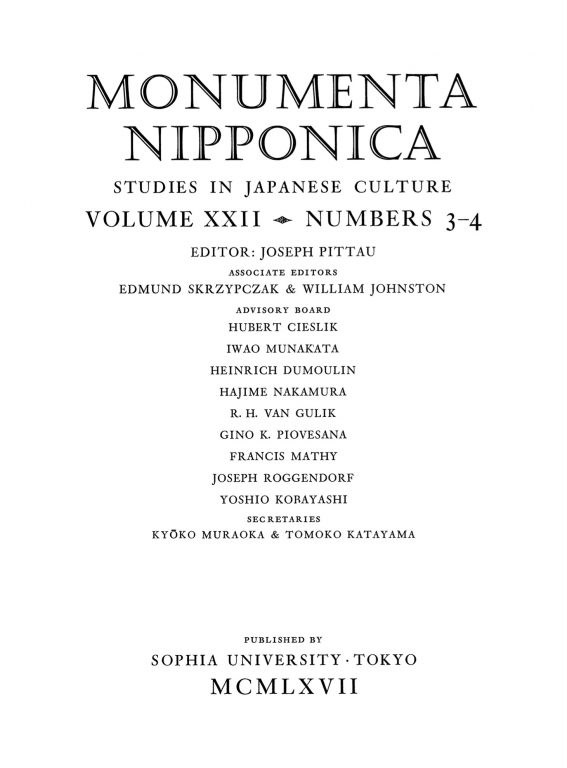 MN 22:3/4 (1967) 305–67Alcock and Harris: Foreign Diplomacy in Bakumatsu JapanJohn McMaster
MN 22:3/4 (1967) 305–67Alcock and Harris: Foreign Diplomacy in Bakumatsu JapanJohn McMaster MN 22:3/4 (1967) 368–89Japanese Opinions on Woodrow Wilson in War and PeaceKimitada I. Miwa
MN 22:3/4 (1967) 368–89Japanese Opinions on Woodrow Wilson in War and PeaceKimitada I. Miwa MN 22:3/4 (1967) 437–81Kōtoku Shūsui: The Change in ThoughtGeorge Elison
MN 22:3/4 (1967) 437–81Kōtoku Shūsui: The Change in ThoughtGeorge Elison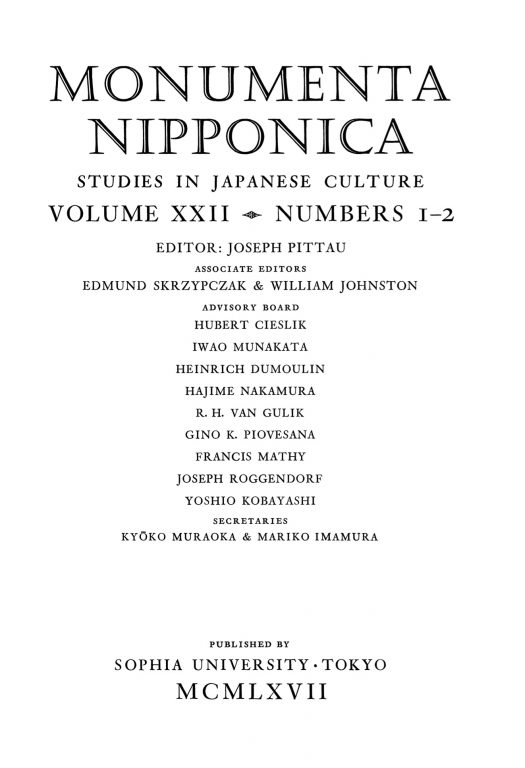 MN 22:1/2 (1967) 15–48The Challenge from Tradition: Attempts to Compile a Civil Code in Japan, 1866–78Robert Epp
MN 22:1/2 (1967) 15–48The Challenge from Tradition: Attempts to Compile a Civil Code in Japan, 1866–78Robert Epp MN 22:1/2 (1967) 82–102The Nomonhan Incident: Imperial Japan and the Soviet UnionKatsu H. Young
MN 22:1/2 (1967) 82–102The Nomonhan Incident: Imperial Japan and the Soviet UnionKatsu H. Young MN 22:1/2 (1967) 122–30The Triple Intervention: Japan’s Lesson in the Diplomacy of ImperialismFrank W. Iklé
MN 22:1/2 (1967) 122–30The Triple Intervention: Japan’s Lesson in the Diplomacy of ImperialismFrank W. Iklé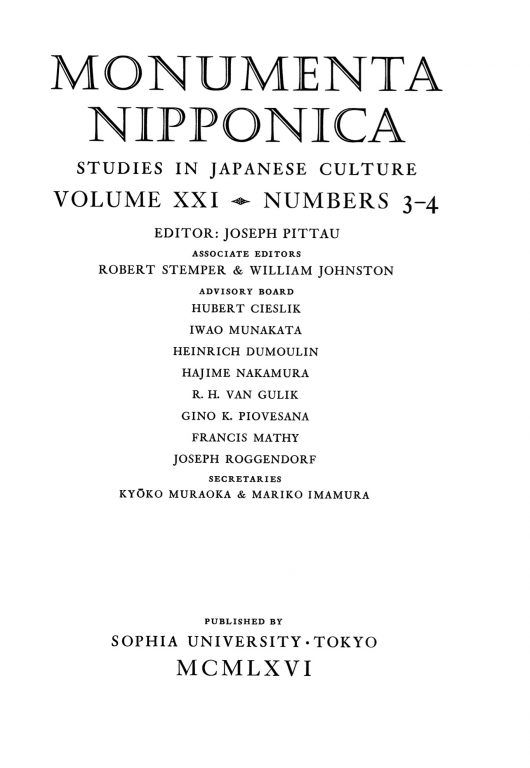 MN 21:3/4 (1966) 305–21Great Britain and the Emergence of Japan as a Naval PowerJohn Curtis Perry
MN 21:3/4 (1966) 305–21Great Britain and the Emergence of Japan as a Naval PowerJohn Curtis Perry MN 21:3/4 (1966) 334–45Lessons from Japanese ImperialismHilary Conroy
MN 21:3/4 (1966) 334–45Lessons from Japanese ImperialismHilary Conroy MN 21:3/4 (1966) 346–53Perspectives on Japanese Foreign PolicyDouglas H. Mendel, Jr.
MN 21:3/4 (1966) 346–53Perspectives on Japanese Foreign PolicyDouglas H. Mendel, Jr.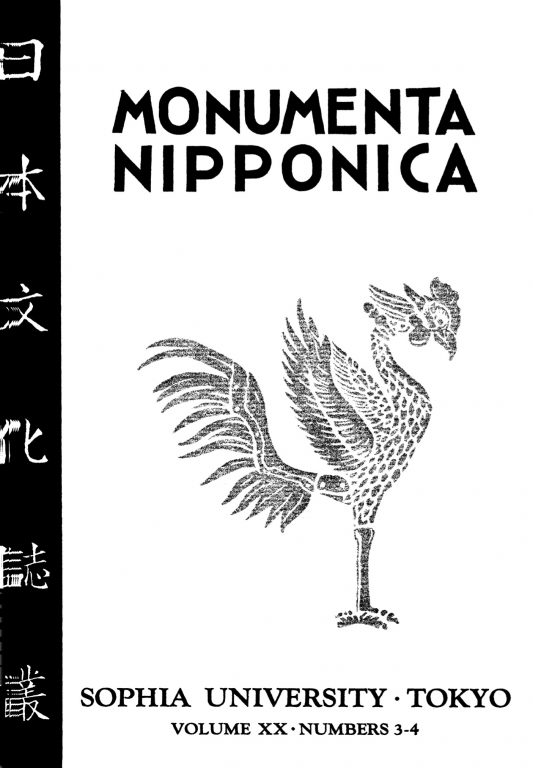 MN 20:3/4 (1965) 253–82Inoue Kowashi, 1843–1895 and the Formation of Modern JapanJoseph Pittau
MN 20:3/4 (1965) 253–82Inoue Kowashi, 1843–1895 and the Formation of Modern JapanJoseph Pittau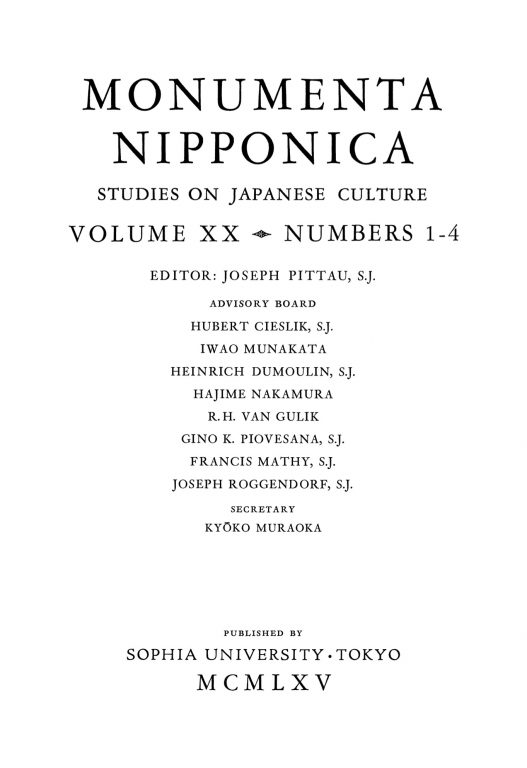 MN 20:1/2 (1965) 1–14Yano Fumio: Meiji Intellectual, Party Leader, and BureaucratJoyce C. Lebra
MN 20:1/2 (1965) 1–14Yano Fumio: Meiji Intellectual, Party Leader, and BureaucratJoyce C. Lebra MN 20:1/2 (1965) 64–80Lighthouses and the Yatoi Experience of R. H. BruntonKieran M. Rohan
MN 20:1/2 (1965) 64–80Lighthouses and the Yatoi Experience of R. H. BruntonKieran M. Rohan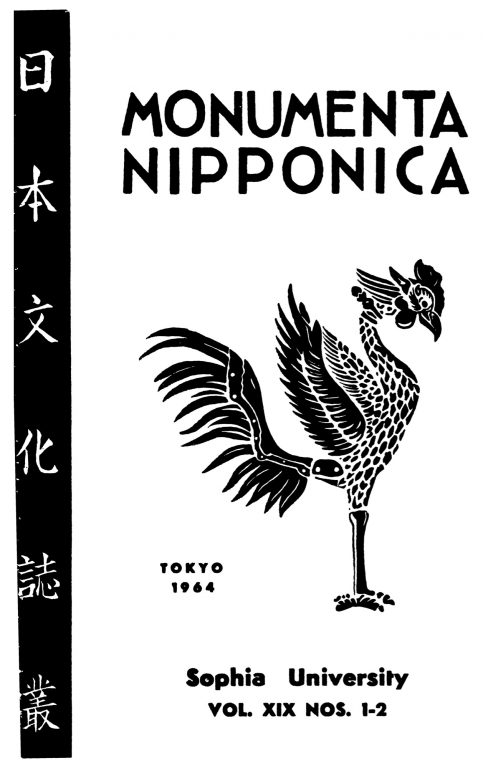 MN 19:1/2 (1964) 111–29Men and Social Ideas of the Early Taishō PeriodGino K. Piovesana
MN 19:1/2 (1964) 111–29Men and Social Ideas of the Early Taishō PeriodGino K. Piovesana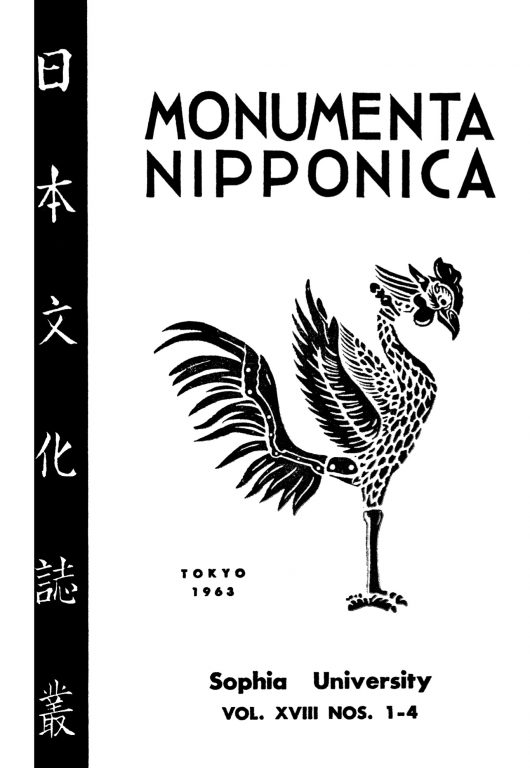 MN 18:1/4 (1963) 45–88The Pearl Harbor Controversy: A Debate Among HistoriansJohn McKechney
MN 18:1/4 (1963) 45–88The Pearl Harbor Controversy: A Debate Among HistoriansJohn McKechney MN 18:1/4 (1963) 191–235The Case of Baba Tatsui: Western Enlightenment, Social Change and the Early Meiji IntellectualEugene Soviak
MN 18:1/4 (1963) 191–235The Case of Baba Tatsui: Western Enlightenment, Social Change and the Early Meiji IntellectualEugene Soviak MN 18:1/4 (1963) 313–28The Chinese Communists’ Role in the Spread of the Marco Polo Bridge Incident into a Full-scale WarKimitada I. Miwa
MN 18:1/4 (1963) 313–28The Chinese Communists’ Role in the Spread of the Marco Polo Bridge Incident into a Full-scale WarKimitada I. Miwa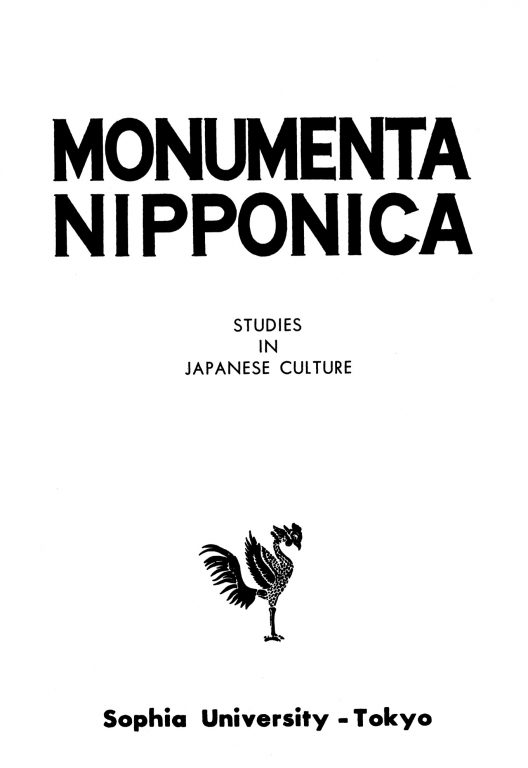 MN 17:1/4 (1962) 17–66Commentaries on the Constitution of the Empire of Japan (Part 1)Hermann Roesler, Translated by Johannes Siemes
MN 17:1/4 (1962) 17–66Commentaries on the Constitution of the Empire of Japan (Part 1)Hermann Roesler, Translated by Johannes Siemes MN 17:1/4 (1962) 1–66Hermann Roesler’s Commentaries on the Meiji Constitution (Part 1)Johannes Siemes
MN 17:1/4 (1962) 1–66Hermann Roesler’s Commentaries on the Meiji Constitution (Part 1)Johannes Siemes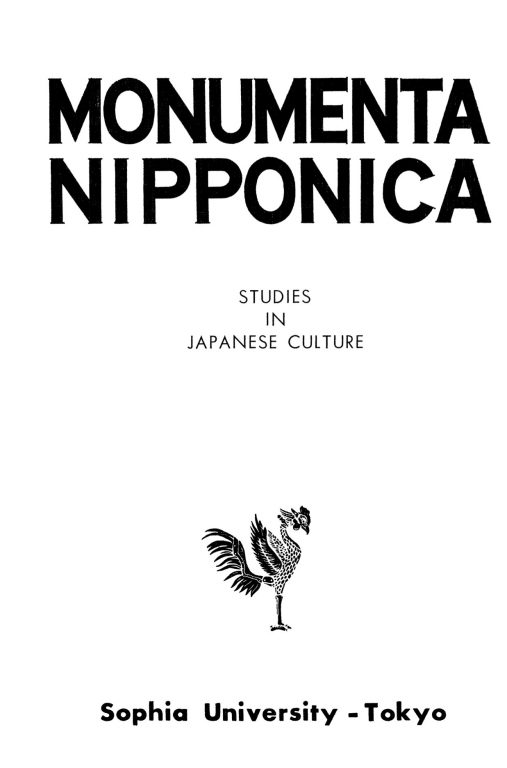 MN 16:3/4 (1961) 402–406The Case for MatsuokaKimitada I. Miwa
MN 16:3/4 (1961) 402–406The Case for MatsuokaKimitada I. Miwa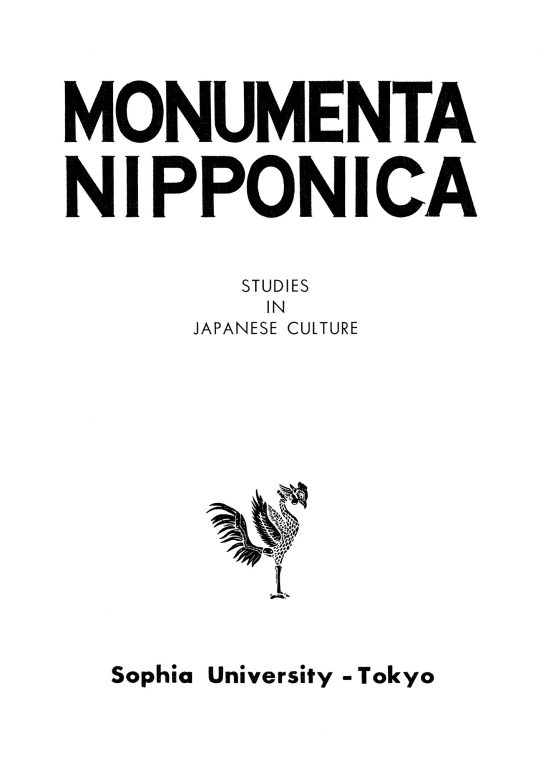 MN 13:3/4 (1957) 313–28Letters of Homer Crane Blake Concerning His Naval Expedition to China, Japan and Korea: 1869–1872 (Part 2)Boleslaw Szczesniak
MN 13:3/4 (1957) 313–28Letters of Homer Crane Blake Concerning His Naval Expedition to China, Japan and Korea: 1869–1872 (Part 2)Boleslaw Szczesniak MN 13:1/2 (1957) 1–38Letters of Homer Crane Blake Concerning His Naval Expedition to China, Japan and Korea: 1869–1872Boleslaw Szczesniak
MN 13:1/2 (1957) 1–38Letters of Homer Crane Blake Concerning His Naval Expedition to China, Japan and Korea: 1869–1872Boleslaw Szczesniak MN 8:1/2 (1952) 47–66The Korean Problem in the Nineteenth CenturyLawrence H. Battistini
MN 8:1/2 (1952) 47–66The Korean Problem in the Nineteenth CenturyLawrence H. Battistini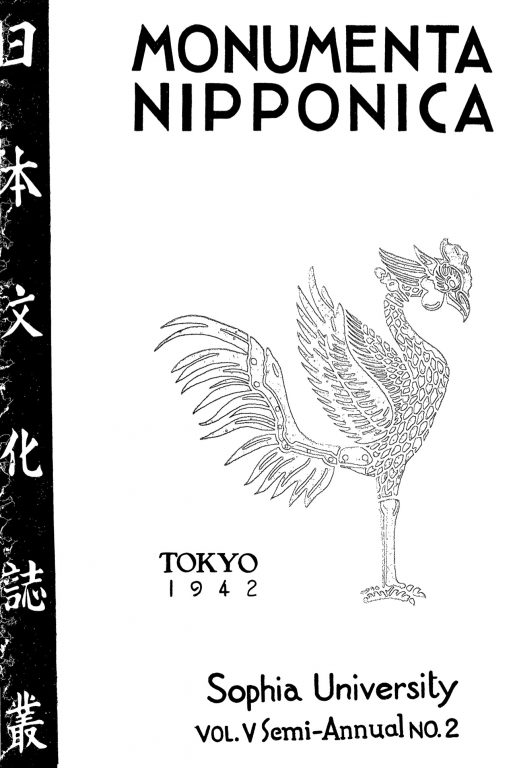 MN 5:2 (1942) 347–400Hermann Roesler und die Japanische Verfassung (Part 3)Johannes Siemes and Yasuzō Suzuki
MN 5:2 (1942) 347–400Hermann Roesler und die Japanische Verfassung (Part 3)Johannes Siemes and Yasuzō Suzuki MN 5:2 (1942) 536–539Verspätete amerikanische Versuche zu richtiger Beurteilung der ostasiatischen ProblemeAlbrecht Magnus
MN 5:2 (1942) 536–539Verspätete amerikanische Versuche zu richtiger Beurteilung der ostasiatischen ProblemeAlbrecht Magnus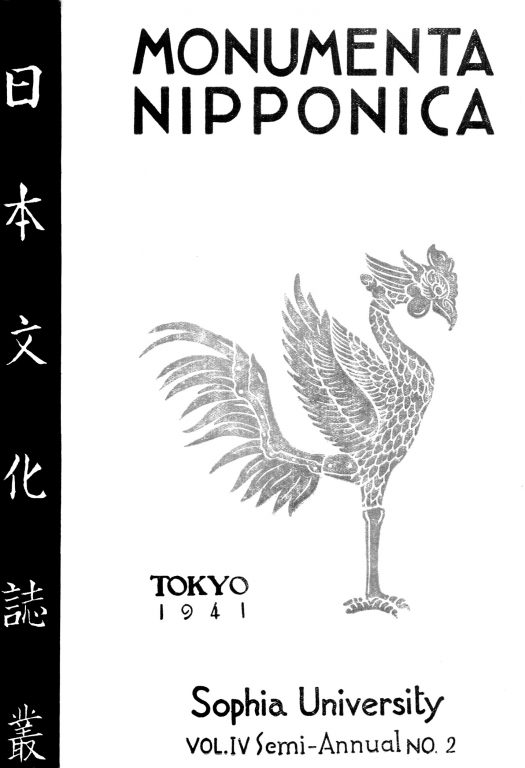 MN 4:2 (1941) 395–427“General” Eduard SchnellKurt Meissner
MN 4:2 (1941) 395–427“General” Eduard SchnellKurt Meissner MN 4:2 (1941) 428–53Hermann Roesler und die Japanische Verfassung (Part 2)Johannes Siemes and Yasuzō Suzuki
MN 4:2 (1941) 428–53Hermann Roesler und die Japanische Verfassung (Part 2)Johannes Siemes and Yasuzō Suzuki MN 4:2 (1941) 606–610Neuere japanische Veröffentlichungen zur Rechtsgeschichte der MeijizeitJohannes Siemes
MN 4:2 (1941) 606–610Neuere japanische Veröffentlichungen zur Rechtsgeschichte der MeijizeitJohannes Siemes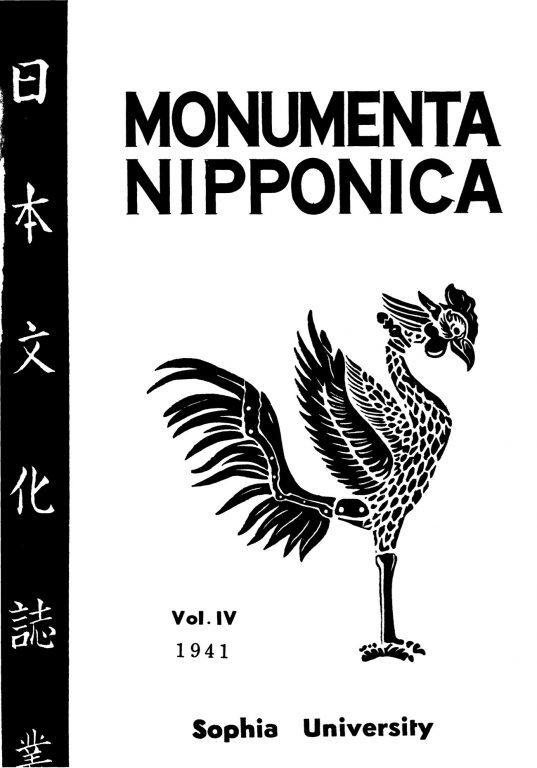 MN 4:1 (1941) 53–87Hermann Roesler und die japanische Verfassung (Part 1)Yasuzō Suzuki and Johannes Siemes
MN 4:1 (1941) 53–87Hermann Roesler und die japanische Verfassung (Part 1)Yasuzō Suzuki and Johannes Siemes MN 4:1 (1941) 88–101The System of Communications at the Time of the Meiji RestorationTakaharu Mitsui
MN 4:1 (1941) 88–101The System of Communications at the Time of the Meiji RestorationTakaharu Mitsui






















